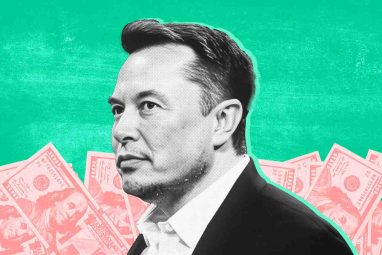Rising AI Investments Expose Talent Shortage as a Major Bottleneck
Cybersecurity and data quality take the lead as top concerns for AI deployment as AI is expected to become a large-scale energy consumer.
Topics
News
- Nvidia CEO Pushes Back Fear of AI Replacing Software Tools
- OpenAI Recruits Anthropic AI Safety Veteran Amid Senior Staff Departures
- Waymo Secures $16 Billion to Expand Robotaxi Operations Worldwide
- OpenAI, Snowflake in $200 Million Deal to Embed AI in Enterprise Data
- Musk Merges SpaceX and xAI in Deal Valued at $1.25 Trillion
- TASC Group Appoints New CEO To Lead AI-Driven Growth in the MENA Region

Despite 87% of organizations having increased their AI and digital infrastructure spending since last year, fewer leaders are now counting AI among its top priorities, reveals ADNOC and Microsoft’s Powering Possible report.
Based on insights from over 850 global experts across energy, technology, AI, academia, and finance—including leaders from OpenAI, TotalEnergies, and the International Energy Agency—one in five companies now deploys agentic AI and autonomous systems.
“AI is no longer a future promise for the energy sector; it’s delivering real impact today—from predictive maintenance to AI-optimized grids,” said Sultan Ahmed Al Jaber, Minister of Industry and Advanced Technology, and managing director and group CEO, ADNOC.
Notably, cybersecurity and data quality have taken the lead as top concerns for AI deployment, where the challenge is no longer theoretical but operational. “Companies are now focused on securing systems and cleaning data to unlock the full value of their AI investments,” read the report.
When it comes to AI adoption, access to talent remains a key barrier for 39% of respondents, as managing crucial issues like cybersecurity and data quality requires specialized skills. AI is set to become a large-scale energy consumer, shedding its niche IT tag. The report highlights how ‘AI for Energy’ and ‘Energy for AI’ are no longer separate agendas.
“Meeting the demands of both the AI era and energy transition will require more than ambition — it will take strong partnerships and innovation,” said Brad Smith, vice chair and president, Microsoft.
The UAE, guided by the National AI Strategy 2031, is actively working towards integrating AI into government services and priority sectors like healthcare, education, and transportation to drive economic growth and efficiency.
Speaking about UAE’s initiatives towards making it a global AI powerhouse, H.E. Omar Sultan Al Olama, Minister of State for Artificial Intelligence, Digital Economy, and Remote Work Applications UAE, shared, “The UAE is deeply committed to developing human capital, empowering people with AI skills, knowledge, and mindset to innovate and lead in the age of AI.”








